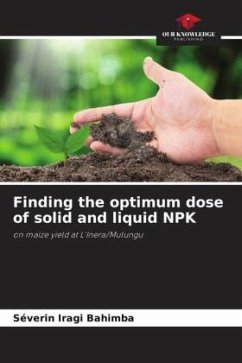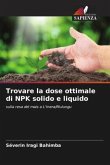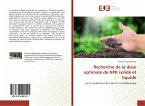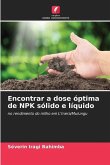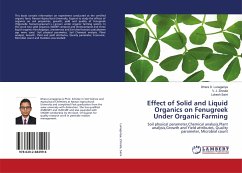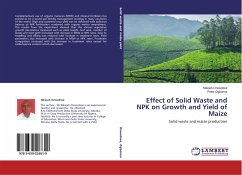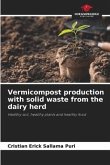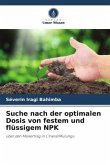In South Kivu, low soil fertility is a major limitation to the productivity of the main food crops. Yields remain low, and the deficit is offset by imports. The aim of this study is to determine which of the solid and liquid forms of NPK is most effective in making the three major elements (NPK) available to the maize crop for optimum growth, and also to determine or specify for each form of fertilization; the dose(s) of NPK enabling the farmer to obtain the best yield and increase maize productivity in the province of South Kivu. The experiment was conducted in the field at INERA/Mulungu using a split plot design with 3 replicates. Treatments included two forms of NPK fertilizer (solid and liquid) and 4 increasing doses ( D1=40 kg NPK,D2=70 kg NPK,D3= 100 kg NPK and D4=130 kg NPK). Results showed that all agronomic parameters increased with increasing fertilizer dose, but that the solid form of NPK had a very positive influence on these parameters.

